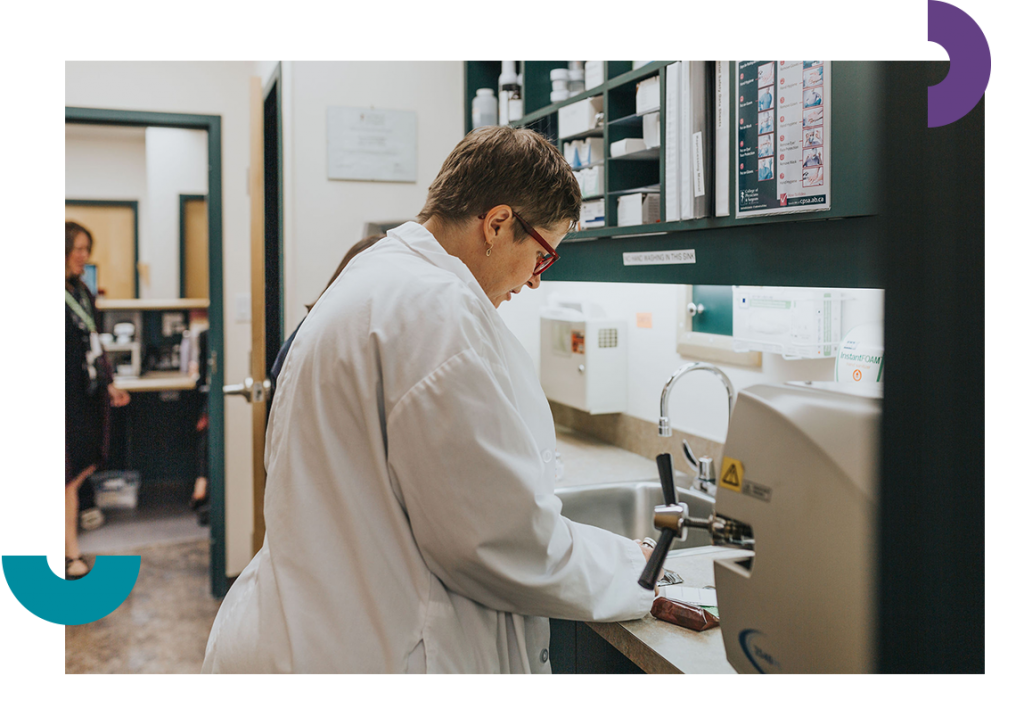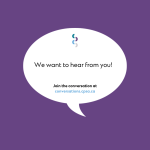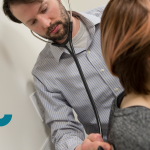Assessing the use of medical devices in Alberta clinics
When Albertans visit a medical clinic, they expect high-quality care in a safe space. CPSA helps medical clinics create these safe spaces for their teams and their patients through our requirements for using medical devices, which set out minimum expectations for medical device reprocessing (MDR) measures like cleaning, disinfecting and sterilizing reusable medical devices.
We also outline requirements and recommendations for single-use medical devices.
Read on to learn about CPSA’s requirements for using medical devices safely, see templates and resources for medical clinics, and find out what kind of MDR training clinic staff should have.

Requirements for using medical devices
Read MoreHow to comply with requirements for medical devices
Read More
IPAC Committee
Read MoreAdditional guidance for clinics
These useful resources can help your clinic meet best practices on some elements not covered in our requirements. We recommend reviewing and sharing them with your clinic team regularly to stay up-to-date.
Qualifying sterilizers
This guidance describes the steps for installation and operational qualification of table-top sterilizers.
Cleaning reusable ear cleaning equipment
This resource shares valuable information about reprocessing tools used to clean ears. Consider this resource before you purchase ear cleaning equipment for your clinic.
Disinfecting devices that only touch the surface of the eye
CPSA is currently conducting research to find a long-term solution for MDR in ophthalmology offices. In the meantime, we strongly recommend clinics follow these guidelines from the American Academy of Ophthalmology and the Joint Commission, which emphasize the high-level disinfection of any devices that touch the surface of the eye.
Templates and resources for your clinic
Templates
To help you comply with CPSA’s MDR requirements, we have prepared templates you can use within your clinic. Please download the following files to see examples of how you can manage your clinic’s records.
Resources
Here are additional resources to support MDR in your medical clinic.
- Suggested layout for MDR area
- MDR table top sterilizer checklist
- Recall protocol for failed BI
- Manufacturer reprocessing information (Alberta Health)
- Guide for management of biomedical waste (Alberta Medical Association)
- Example MIFUs (Miltex Padgett Instruments)
- Envelope wrapping method (CSA Group)
- Envelope wrapping method (Alberta Health Services)
- 4 moments of hand hygiene (Alberta Health Services)
- PPE poster
- PPE procedure manual
- PPE demonstration video
Additional MDR resources
All ResourcesAlberta Health's MDR Standards
Alberta Health Click to view filesAlberta Health Services' MDR Resources
Click to view filesCanadian Standards Association Medical Device Reprocessing standard for purchase
Click to view filesPublic Health Ontario's Best Practices for Cleaning, Disinfection and Sterilization in all Healthcare Settings
Public Health Ontario Click to view filesOnline MDR training
Every medical clinic needs an infection prevention and control lead, and if medical device reprocessing takes place, clinic staff need MDR education and training. We recommend the courses below. These courses are not run by CPSA.
Sterilization Assistant Course
This course from University of Alberta Faculty of Medicine and Dentistry is a hybrid format (online and in-person) and includes a 4-day practicum placement in clinic settings. It aims to prepare individuals for a career in medical device reprocessing and infection prevention and control.
On your completion, you will be able to:
- Apply basic infection prevention and control principles and practices to everyday practice.
- Safely and effectively transport, disassembly, clean, disinfection, assembly, function testing, package and sterilization of medical devices in a community setting (dentistry, non-accredited medical clinics).
- Perform quality assurance testing measures to ensure medical devices are safe to use.
- Understand the minimum required documentation of reprocessing activities.
- Understand the requirements for routine and preventative maintenance of all automated reprocessing equipment including basic troubleshooting.
Medical Device Reprocessing Techniques
The Medical Device Reprocessing Association of Ontario (MDRAO) Medical Device Reprocessing Techniques online course provides information to support those working in the field of reprocessing. The course is self-paced, does not include a practicum component and must be completed in a 4-month timeframe.
This course supports those looking for an in-depth understanding of the principles of decontamination, assembly and sterilization and provide participants with a basis for critical decision-making when unusual incidents occur. The course materials rely heavily on the latest Canadian Standards Association (CSA) standards and regulations that guide Canadian health care.
Reprocessing in community health care settings
These best practices will help you prevent the spread of infection. If you are responsible for medical device reprocessing in a community clinic, this Public Health Ontario course is for you.
In 9 modules (2-4 hours total), you’ll learn:
- general concepts in reprocessing
- information and skills for safely reprocessing reusable medical equipment/devices
- information related to the importance of following best practices and the consequences of inadequate reprocessing
- best practices in reprocessing
MDR in community healthcare settings
This online course from the Canadian Standards Association includes a variety of lessons, a document library, sample procedures and self-assessment quizzes. Choose from four optional modules categorized by area of expertise.
You’ll learn:
- basic IPAC principles and semi-critical and critical medical device reprocessing
- hands-on skills to increase the effectiveness of your reprocessing procedures
- theory of decontamination
- basic concepts of patient safety
Subscribe to the IPAC mailing list
Subscribe to this CPSA mailing list to get the latest IPAC and MDR news, including updates to requirements, guidelines, policies and new resources.
Information for Albertans
All medical clinics in Alberta must meet strict infection prevention and control requirements. CPSA routinely assesses clinics for medical device reprocessing. If you see a CPSA certificate in your community medical clinic, it means they’ve been assessed under our MDR requirments.
If you have a question or concern about how your clinic meets our MDR or IPAC requirements, reach out to us using the contact form below.
Questions or feedback? We'd love to hear from you.
Phone: 780-969-5004
Toll-free: 1-800-561-3899 ext. 5004 (in Canada)
Fax: 780-424-5859























